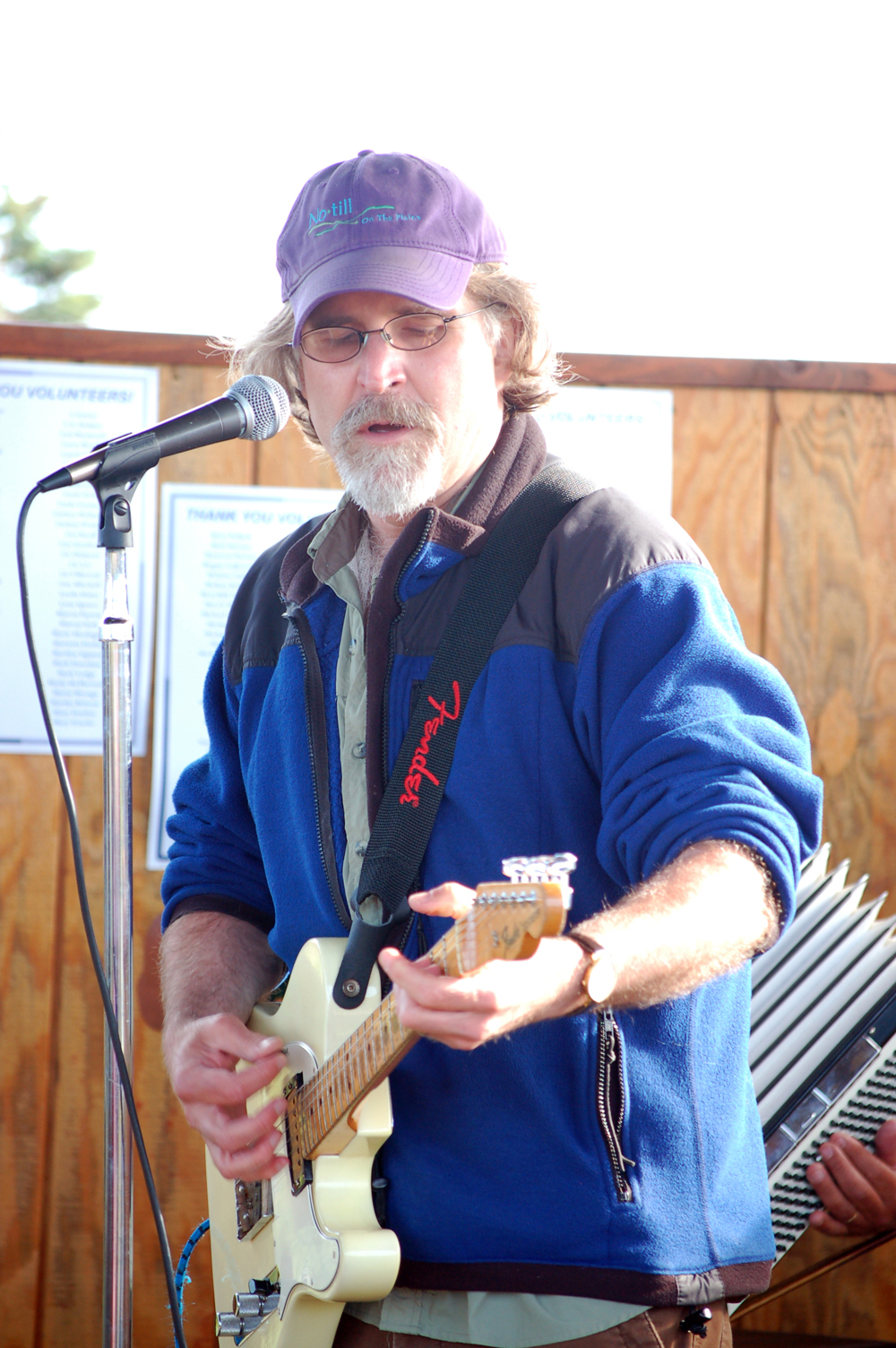Not every scientist starts out a talk playing guitar, but David Montgomery, the speaker at Cook Inletkeeper’s 17th annual Splash Bash on July 31, isn’t your average scientist.
Author of “King of Fish: The Thousand-year Run of Salmon,” recipient of a MacArthur Foundation “genius” grant and a member of the band Big Dirt, Montgomery played a few licks with artist Ray Troll, a musician in the band Rat Fish Trollers, and John “Johnny B.” Bushell. Both bands also played last weekend at Salmonstock, with Johnny B. joining Troll’s band.
Splash Bash is Cook Inletkeeper’s annual event with food, music and information to celebrate clean water and healthy salmon and to recognize members, supporters and volunteers.
About 50 people enjoyed grilled salmon and halibut on a sunny day at Bishop’s Beach park by the slough.
Montgomery is a professor and geomorphologist in the University of Washington’s Department of Earth and Space Sciences, where he studies the evolution of topography and influence of geomorphological processes on ecological systems and human societies.
A geomorphologist is a geologist who studies the surface of the earth, Montgomery said.
“I study mountains. I study estuaries,” he said. “Why would a geomorphologist write a book about fish? It’s because I study rivers.”
Montgomery got involved in the relationship between salmon and rivers when he worked on salmon recovery plans in the state of Washington. In looking at salmon, he looked at how changes in rivers affect salmon.
“What is the geologic reason for the diversity of salmon?” he asked.
New England had salmon once. Scotland, Great Britain and Norway once had more salmon. Loss of salmon habitat has accelerated over time, he said. It took 600 years in Scotland and the pace has increased ever since. Salmon habitat and salmon runs die with lots of individual decisions.
“The story of the decline of salmon in other regions is one stream at a time … one mill pond being built at a time in New England,” he said.
While humans have become good at destroying salmon streams, they aren’t good at repairing them, Montgomery said. That’s relevant in Alaska because we live in the last salmon stronghold in North America, he said.
“If you repeat what happened in New England here in Alaska, we’ll have a clean sweep in North America,” he said.
The proposed Pebble Mine has become a focus of concern for salmon habitat, Montgomery said. Also of concern are smaller projects like the proposed Chuitna coal mine in upper Cook Inlet, where 16 miles of salmon stream would be destroyed by mining.
“I cannot point you to somebody who has completely taken apart a stream and put it back the way it was before,” he said.
There’s a lot of hubris in saying that can be done. Rebuilding a salmon stream can be posed as a scientific hypothesis, Montgomery said.
“Do you really want to be running experiments on resources you’d really rather not lose?” he asked. “I don’t think that’s a great bet.”
Alaska presents an opportunity for salmon.
“You have the opportunity to actually get it right this time,” Montgomery said. “We’ve screwed it up in a lot of regions that had an awful lot of salmon.
Salmon have a bright side, though.
“Salmon are incredibly resilient fish,” he said. “They’re like weeds. If you give them half a chance, they can spread to cover an entire landscape.”
Looking out at the glaciers of Kachemak Bay, Montgomery added another thought.
“Think about this region more than 10,000 years ago. There were no salmon in the streams. It was covered with ice. They came back because they’re incredibly resilient. … We can keep killing and eating half of them and keep doing it in perpetuity if we simply leave their habitat and the state where it can actually support their basic biology. That’s an incredible gift.”
Michael Armstrong can be reached at michael.armstrong@homernews.com.


